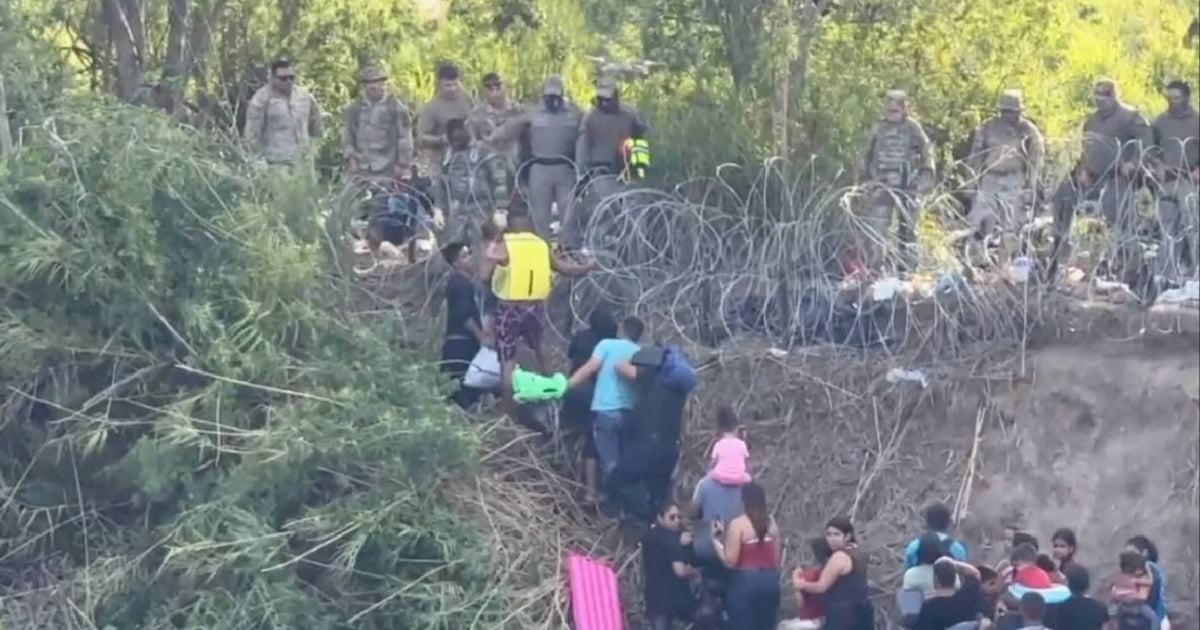A human smuggler allegedly sexually assaulted a Cuban migrant this week at the Mexico-Texas border, according to local media reports.
In an interview with Super Channel 12, District Attorney Roberto Serna of the 293rd Court revealed that a coyote was captured at the beginning of the week by the state of Texas for his involvement in the sexual assault of a migrant from the island. The incident reportedly occurred while the woman was in a safe house near the border.
According to Serna, when someone commits the crime of sexual abuse against a woman, whether she is an immigrant or not, the penalty, provided all evidence points to the perpetrator, can range from probation to five years in prison, and potentially up to a life sentence. He emphasized that in the state of Texas, offenders are punished without distinction.
Investigative Process
Officers involved in the investigation are examining existing evidence to formulate charges and will present them before the court when appropriate, explained Serna. He noted that the severity of the penalty depends on various factors, including DNA evidence.
"We must wait for DNA results if the report is of rape; if the victim only suffered inappropriate touching, then the sanctions would be less severe," he commented.
Serna added, "Everything is taken into account because it could be that the victim lied to gain favorable immigration status, among other points that need to be reviewed."
Many women have fallen victim to rape, kidnapping, and human trafficking amid the Cuban migration crisis during their journey to the U.S. border. In May, Mexican authorities dismantled a human trafficking network operating in five bars in Quintana Roo, where a Cuban migrant and four Venezuelan women were subjected to sexual exploitation.
Days after that incident, two more Cuban women being sexually exploited in Quintana Roo were rescued in a joint operation by the State Attorney General's Office and the National Guard.
In February, the feminist organization Caminantas, which assists migrant women in Mexico, warned of an increase in human trafficking cases involving Cuban, Colombian, and Venezuelan women.
"Many women arrive in Mexican territory with the promise of employment or after having formed romantic relationships online with Mexican men who have financially supported them or their families for several months or even years," said María Ángel Vielma, a member of Caminantas, in an interview with EFE.
Meanwhile, the Cuban migration crisis continues unabated. A total of 17,563 Cubans entered through U.S. borders in June, according to data released Monday by the Customs and Border Protection (CBP). Although this figure is high, it represents the lowest entry in the first nine months of the U.S. fiscal year 2024, which began on October 1st of the previous year.
Understanding the Cuban Migration Crisis and Human Trafficking
Below are some frequently asked questions and answers to provide more insight into the ongoing Cuban migration crisis and issues of human trafficking at the U.S. border.
What are the penalties for sexual assault in Texas?
Penalties for sexual assault in Texas can range from probation to five years in prison, and potentially up to a life sentence, depending on the severity of the crime and the evidence presented.
How are human trafficking networks dismantled?
Human trafficking networks are dismantled through joint operations by various law enforcement agencies, such as the State Attorney General's Office and the National Guard, which involve careful investigation and evidence collection.
What is the role of Caminantas in assisting migrant women?
Caminantas is a feminist organization that aids migrant women by providing support and raising awareness about the increase in human trafficking cases, particularly involving Cuban, Colombian, and Venezuelan women.
